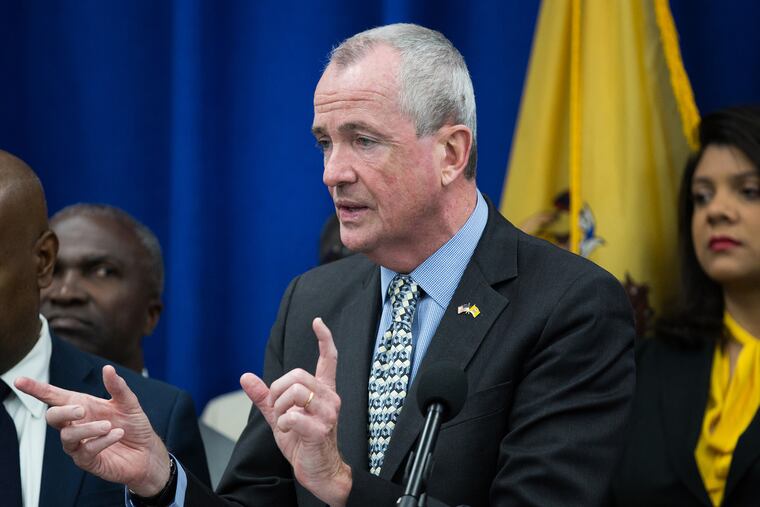Murphy signs bill expanding family leave in New Jersey
New Jersey Gov. Phil Murphy has signed into law a bill expanding the state's paid family leave program.

PISCATAWAY, N.J. (AP) — New Jersey's paid family leave is doubling from six to 12 weeks and increasing the amount people will bring home under a new law Democratic Gov. Phil Murphy signed Tuesday.
Murphy signed the bill at a library in Piscataway alongside legislative sponsors and advocates just a few weeks after the Democrat-led Legislature sent him the bill and over objections from businesses that argue they can't afford the broadened mandate.
New Jersey is one of five states, along with the District of Columbia, to have paid family leave. The others are California, New York, Rhode Island and Washington, according to the National Conference of State Legislatures.
The bill is another progressive achievement for Murphy, who campaigned in 2017 as an unabashed liberal and has delivered on several promises, including raising the minimum wage, thanks to Democrats' firm hold on power in state government.
Under the new law, paid family leave is doubled from six to 12 weeks. The measure also increases the amount of the benefit from two-thirds of pay to 85 percent of pay, though it caps the amount. The most recent estimates show the benefit would go to $859 per week, up from $632.
The law makes other changes, expanding the definition of family from spouses, children, parents, parents-in-law and domestic partners to also include grandparents and grandchildren.
The bill's backers hail the measure as a critical part of the financial safety net.
"The worst thing in the world is having a family member who is ill and you are not able to spend time with them," said Lt. Gov. Sheila Oliver, who attended the bill-signing.
But businesses raised concerns that the bill adds a further burden to New Jersey's employers and puts them at a competitive disadvantage compared with neighboring states.
"Our employers already have to compete with companies that do not have any paid family leave law to deal with," said New Jersey Business and Industry Association executive Mike Wallace in a statement.
Murphy responded to the criticism Tuesday, saying the program is financed by a "very small tax" and argued the measure will help families achieve financial security in the face of hardship.
"The fact of the matter is the bigger picture is what I mentioned a minute ago: a stronger, more secure middle class (and) working families in this state," Murphy said.
Family leave is financed by a tax on wages that is set by the state's labor department. A legislative fiscal note accompanying the measure shows that the increased wage taxes that go along with the expanded program are expected go up by up to $364 million by 2022.
Republicans opposed the measure. Since they've been out of power with Republican Chris Christie leaving office last year, they've focused heavily on the state's affordability, or lack thereof, as they see it. Christie vetoed a similar measure in 2017.
Republican Assemblywoman Holly Schepisi said recently that the Democratic agenda has helped the "poorest of the poor," and likely hasn't harmed the very wealthy who have the means to leave the state. But, she said, they've largely left behind middle-income earners.
“If you’re amongst the middle class ... these policies are crushing you,” she said.